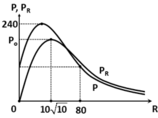Read the following passage and mark the letter A, B, C or D on your answer sheet to indicate the correct answer to each of the questions from 1 to 10.
Television’s contribution to family life in the United States has been an equivocal one. For while is has, indeed, kept the members of the family from dispersing, it has not served to bring them together. By dominating the time families spend together, it destroys the special quality that distinguishes one family from another, a quality that depends to a great extent on what a family does, what special rituals, games, recurrent jokes, familiar songs, and shared activities it accumulates.
“Like the sorcerer of old,” writes Urie Bronfenbrenner, “the television set casts its magic spell, freezing speech and action, turning the living into silent statues so long as the behavior it produces – although there is danger there – as in the behavior it prevents: the talks, games, the family festivities, and arguments through which much of the child’s leaning takes place and though which character is formed. Turning on the television set can turn off the process that transform children into people.”
Of course, families today still do special things together at times: go camping in the summer, go to the zoo on a nice Sunday, take various trips and expeditions. But the ordinary daily life together is diminished – that sitting around at the dinner table, that spontaneous taking up of an activity, those little games invented by children on the spur of the moment when there is nothing else to do, the scribbling, the chatting, the quarreling, all the things that form the fabric of a family, that define a childhood.
Instead, the children have their schedule of television programs and bedtime, and the parents have their peaceful dinner together. But surely the needs of adults are being better met than the needs of children, who are effectively shunted away and rendered untroublesome.
If the family does not accumulate its backlog of shared experiences, shared everyday experiences that occur and recur and change and develop, then it is not likely to survive as anything other than a caretaking institution.
According to the passage, how does television destroy the special quality of the family?
A. By showing horror films
B. By dominating the time families spend together
C. By threatening our health, safety, finances and relationships
D. By reporting scarce breaking news



